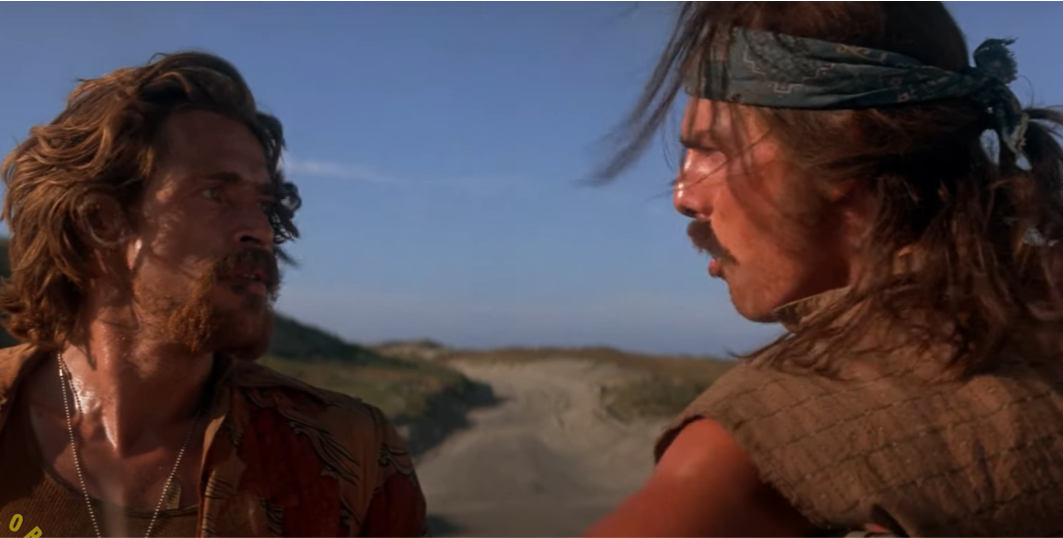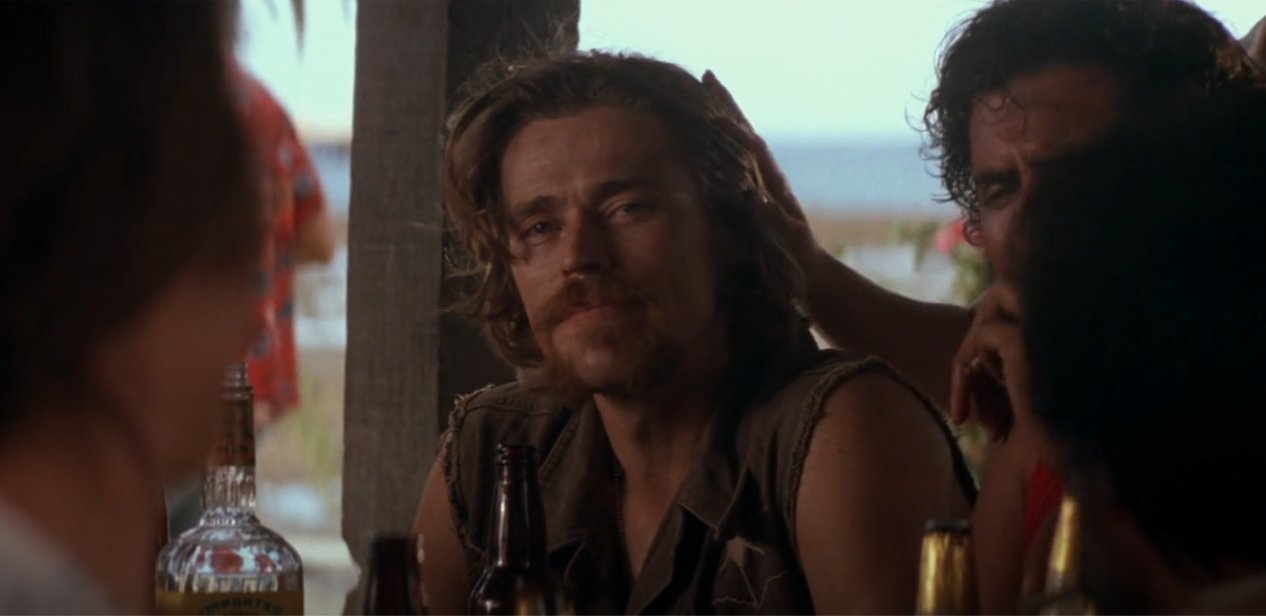In Oliver Stone’s adaptation of Ron Kovic‘s autobiography, titled ‘Born on the Fourth of July,’ the protagonist hits his lowest point after a cathartic confrontation with his parents, where he declares his disillusionment with the war, the nation, and God himself. Following this, he makes his way to a veterans’ haven in Mexico called Villa Dulce. Here, he befriends Charlie, played by Willem Dafoe, a fellow Vietnam veteran who has chosen to stay in Mexico following an unwelcoming life back home. With a host of new experiences awaiting him, Kovic quickly dips his feet into this new lifestyle under Charlie’s guidance. However, instead of a way out of his sorrows, he finds himself trapped in the web of trauma and addiction, one that eventually pushes his friend past the tipping point. Charlie’s violent breakdown, fueled by guilt and insecurity, stands as the ultimate test for Ron Kovic. SPOILERS AHEAD!
Charlie is Modeled After a Real Veteran Whom Ron Kovic Befriended
While Charlie is indeed based on a real-life Vietnam veteran who spent his days in Las Fuentes, Mexico, his film version sees several changes from the original. While in the movie, he is a prominent character, serving as the protagonist’s introduction to a new and dramatically unique lifestyle and also being the one to confront him, in the book, he is a relatively minor presence. While Kovic does spend a significant amount of time with him, the two never share dialogue throughout the text. Charlie’s entire journey is wrapped up in a handful of sentences, more resembling a casual anecdote rather than a pivotal influence. In the memoir, he is described as a person who wishes to have a real party and is always in possession of good-quality drugs. He hangs around with Kovick for only one night, and the two get inebriated before heading for the nearby brothels.

In the memoir, things then quickly takes a violent turn, with Kovic finding out that Charlie has punched a woman in the face for making fun of his erectile dysfunction following his paralysis. He is described as flailing his hands in a wild rage, screaming profanities, and proclaiming the fact that he was made to kill babies during his time in Vietnam. While he and Kovic are kicked out, the latter is unable to say anything, as he is still affected by his friend’s words, which reflect his own past. The two then manage to find a cab but are kicked out yet again following Charlie’s altercation with the driver over the price. Finally, after sitting in the sun for too long, the duo finds a nice truck driver who drops them in the village without complaining about the fact that Charlie had peed all over the seat and created a ruckus the entire way.
As such, the real-life account has a significant diversion from the movie’s plot, where Charlie, in his mad fit, ends up confronting Kovic as well, and the two begin to fight over their contribution to the war. The former’s confession of killing babies is repurposed in this scene and used instead as a question directed towards the protagonist, who keeps narrowly avoiding the traumatic subject before giving in. The two then begin to target each other’s insecurities and their shared inability to return to normalcy. Soon enough, the verbal argument turns physical, and the two paraplegics drop each other to the ground and engage in an awkward struggle before losing steam and dropping to the ground, at which point they are rescued by a passing motorist instead of a truck driver. The changes make sense, as the confrontation marks a watershed moment for Kovic’s character.
Charlie’s Character is Augmented to Serve a Narrative Purpose
Charlie’s character being given more weight in the film is likely a conscious decision by the screenwriters Oliver Stone and Ron Kovic. Through dramatizing his true story, Kovic can effectively capture something larger than life and make the character an analogy for a greater consciousness. Thus, Charlie, while loosely based on a real person, might additionally be interpreted as a composite of the many veterans who had to inflict untold horrors against their wishes, with the death of children being their gravest sin. The Vietnam War was marked by the disillusionment of many generations, who now became open witnesses to and participants in the futility of war, perpetuating a pointless cycle of violence that led to a severe loss of life and humanity. For some, like Charlie, this can be too much to bear, causing a psychological collapse.

Earlier in the film’s narrative, Charlie introduces Kovic to the decadent aspects of life at Villa Dulce. This is expressed through his activities, a marathon card game, incessant drinking, and exploitation of local women. He seeks to make Kovic like himself, that is, make him give up on his values and accept the fact that there is no redemption for soldiers like them. The dynamic reaches its boiling point following their fight in the desert, where Charlie desperately seeks Kovics’s companionship in evil, possibly to alleviate his loneliness. However, Kovic refuses to flinch, reminding him of the value of the life that the two of them left behind. While Kovic immediately learns his lesson and heads back, Charlie’s fate is left unknown. In the memoirs, he, too, seems to have had his fill after that fateful day and promptly makes his way back to New York.
Read More: Eli and Patricia Kovic: What Happened to Ron Kovic’s Parents?


